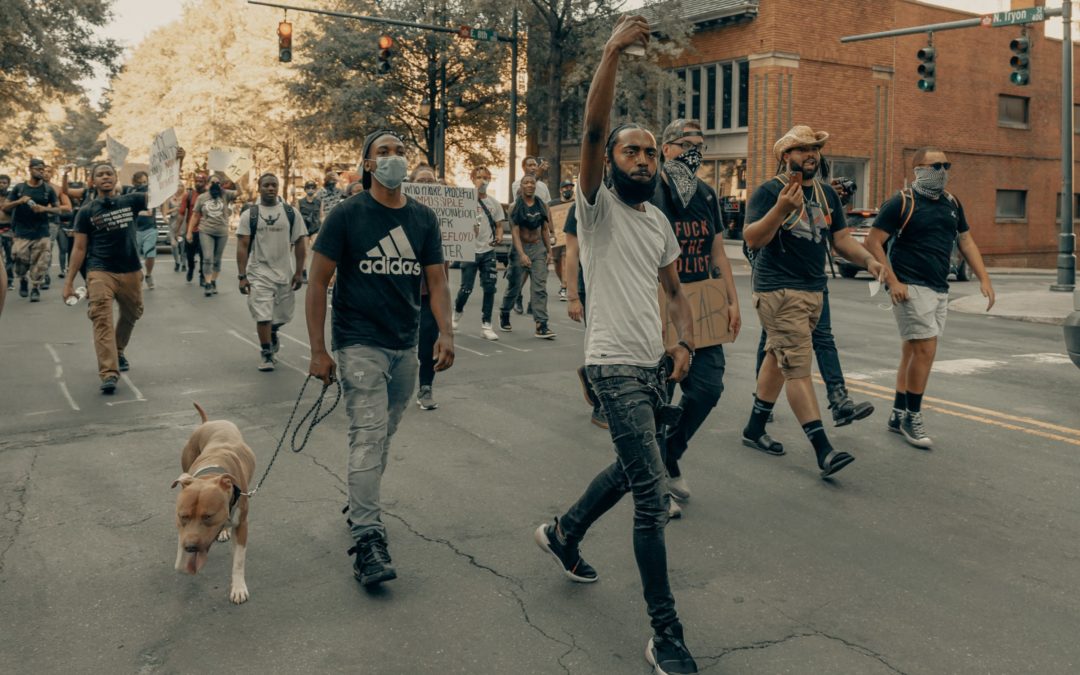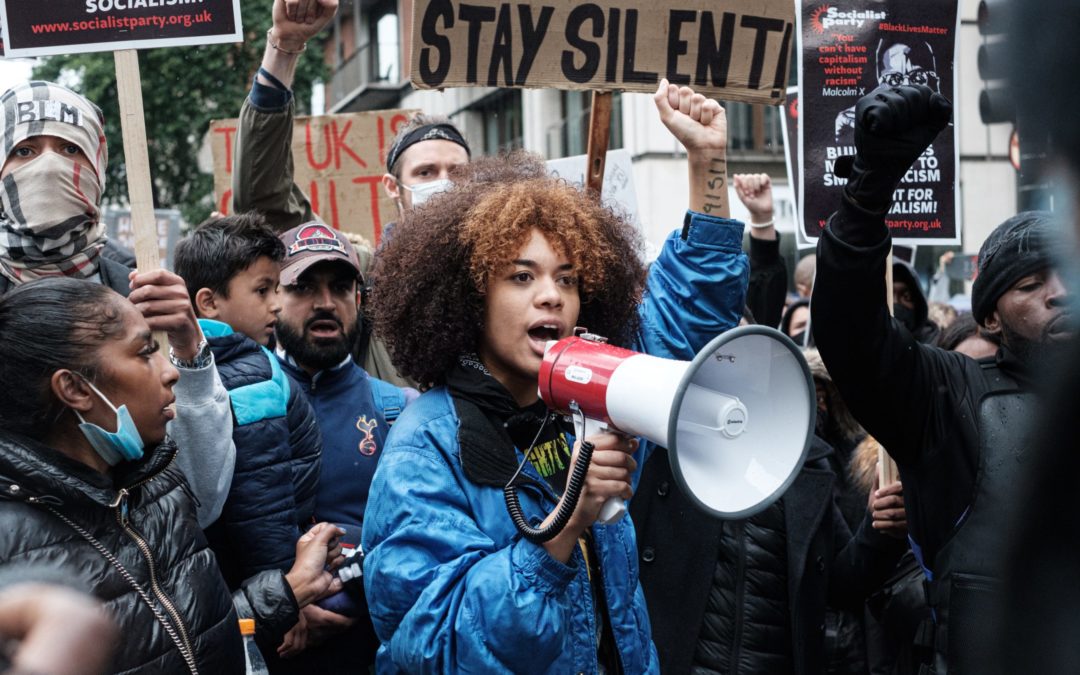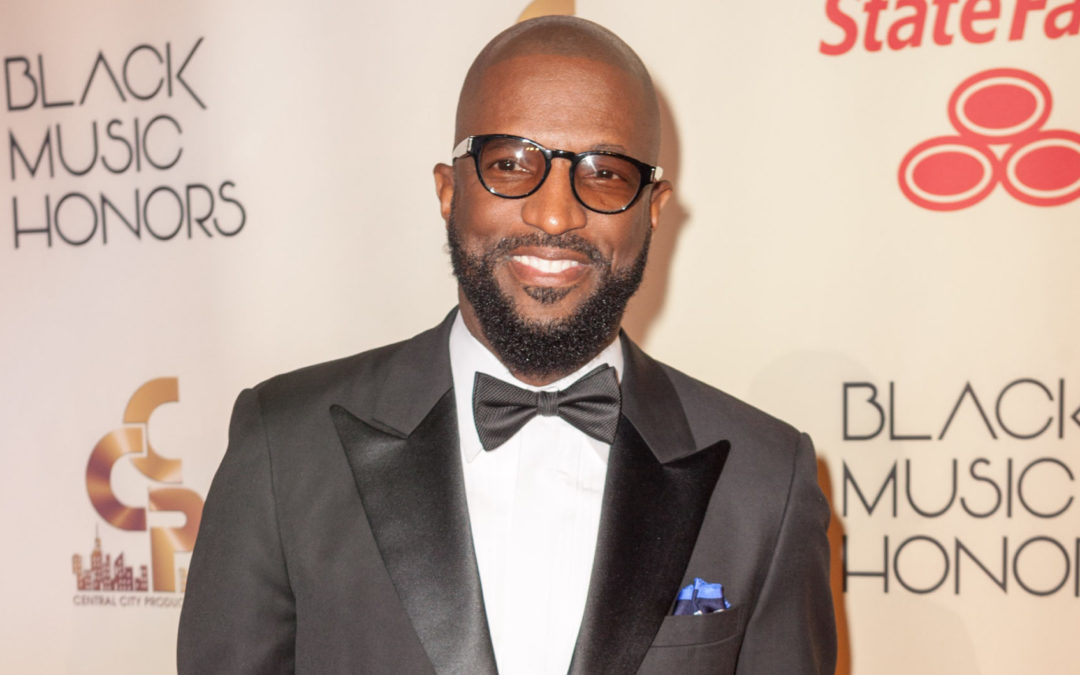
by Laghe Andrews | Dec 13, 2023 | Latest, Social Justice |
Photo by Mayer Tawfik on Unsplash
In a society where racial equality and social justice are at the forefront of discussion, allegations of racial discrimination are serious and can have severe consequences. This article examines the case of a well-known US crane operator, TNT Crane & Rigging, which found itself in hot water over accusations of racial discrimination, harassment, and retaliation.
The Accusations
Four African-American employees at TNT Crane & Rigging came forward with claims of racial discrimination and harassment. The victims, namely Edwin Crayton, Lorenzo Smith, Freddie Campbell, and Jason Pradia, reported experiencing racial slurs and witnessing hate symbols at their workplace.
“The EEOC will continue to robustly enforce the law to ensure equal opportunity in the construction industry, and every industry.” – EEOC Chair Charlotte A. Burrows
The Lawsuit
In response to these serious allegations, the U.S. Equal Employment Opportunity Commission (EEOC) filed a lawsuit against TNT Crane & Rigging in August. The federal agency stated that the complaints and evidence presented by the four employees were sufficient to warrant a formal legal investigation into the company’s practices.
The Alleged Incidents
Some of the incidents reported by the employees include demeaning comments, offensive nicknames, and even physical threats. Lorenzo Smith, a crane operator, recalled an episode where a field manager used a racial slur when Smith requested additional help for a task. Similarly, truck driver Freddie Campbell discovered that his colleagues had given him a racially offensive nickname, while Jason Pradia, a rigger, shared that a white coworker had made a racially charged comment about his work ethic.
The Retaliation
The situation escalated when the employees reported these incidents to the management. Instead of receiving support, they claimed they were met with retaliation. Alleged acts of retaliation ranged from threats and physical assault to damage of personal property, such as flattening of tires.
Witness Testimonies
Interestingly, it wasn’t just the victims who reported these incidents. A white employee, Nathan Cook, also claimed to have witnessed the harassment. Upon reporting it, he too faced retaliation, including physical assault and derogatory labels.
EEOC’s Role in the Matter
The EEOC, which specializes in enforcing federal laws that make it illegal to discriminate against a job applicant or an employee, has taken up this case with the aim of ensuring equal opportunity in the construction industry.
The Impact of the Case
This case has brought to light the disturbing reality of racial discrimination and harassment in the construction industry. As the industry experiences a boom due to federal investments, it is crucial that companies foster a work environment that is free from discrimination and harassment.
The Road Ahead
As the legal battle unfolds, it is clear that this case has far-reaching implications. It serves as a stark reminder to all industries about the importance of creating a racially inclusive and respectful workplace.
Conclusion
The lawsuit against TNT Crane & Rigging emphasizes the role of regulatory bodies like the EEOC in ensuring a discrimination-free workplace. It also highlights the importance of standing up against racial discrimination and fostering a culture of respect and equality.
This is a developing story, and we will bring you updates as they unfold.

by Jonathan P-Wright | Sep 29, 2023 | Latest, Social Justice |
Photo by Izuddin Helmi Adnan on Unsplash
he University of Alabama, an esteemed institution in the USA, recently found itself at the center of a controversy that sparked nationwide conversation on social justice. A football match held at the university’s Bryant-Denny Stadium became the backdrop for an event that overshadowed the game itself, leading to a wave of outrage, discussions, and introspection.
The Incident
On an otherwise ordinary Saturday night, September 9, 2023, the University of Alabama’s Crimson Tide lost a match to the Texas Longhorns (34-24). However, the match’s result wasn’t what captured the public’s attention. The Bryant-Denny Stadium, the eighth-largest in the United States with a capacity of 100,077, became the stage for an unsettling display of bigotry.
As the University of Texas athletes began to celebrate their victory, a group of spectators hurled racial slurs and homophobic comments at the Longhorns’ players on their sideline. This shocking incident happened on the same night that popular artist Lil Nas X and others faced a homophobic bomb threat at the 2023 Toronto International Film Festival, highlighting the pervasiveness of such discrimination.
University of Alabama’s Response
The University of Alabama responded swiftly and decisively to the incident. In a statement released on Monday, September 11, the university expressed its deep disgust at the reports of vile language and inappropriate behavior that occurred during the match.
The institution emphasized its condemnation of such conduct, stating that it doesn’t represent the university or its values. The university further urged attendees to uphold the principles of respect and decorum, reassuring that violations of its rules would be dealt with promptly, including potential bans from future events.
The Fallout
The incident’s ripple effects were far-reaching, extending beyond the University of Alabama’s campus. A video of the event went viral, in which Crimson Tide fans could be heard shouting offensive slurs at three black players from the Longhorns team – X’Avion Brice, Jelani McDonald, and Quintrevion “Tre” Wisner.
The players’ families were not spared from the hostility either. Wisner’s mother took to Twitter to share her heartbreaking experience at the game. She revealed that they endured a night of verbal abuse, with spectators throwing beer cans, water bottles, and even spitting at them. Despite the painful ordeal, she expressed pride in her son and the other players, all of whom are on full scholarship at their respective schools.
Tagging the Incident
In the aftermath, the incident was widely discussed under various tags. Education, NCAA, and Sports were among the most frequently used. These tags served as crucial markers, linking the incident to broader issues of social justice, education, and sports culture, thereby facilitating a broader conversation around the event.
Broader Repercussions
The incident at the University of Alabama was not an isolated one. Similar events have occurred in various sporting arenas, reflecting the deep-seated racial and homophobic biases that persist in society. Such instances underscore the urgent need for social justice, the eradication of discrimination, and the promotion of inclusivity in all spheres of life, including sports.
Conclusion
The University of Alabama incident serves as a stark reminder of the challenges that persist in our society. It underscores the importance of fostering an environment of respect, tolerance, and inclusivity, not just within the confines of a university or sports arena, but in every aspect of our lives.
While the incident left a black mark on the match’s memory, the University of Alabama’s swift response and the ensuing discussions serve as a silver lining, paving the way for meaningful conversations and actions towards social justice. Such incidents serve as crucial reminders of the work that remains to be done in fostering a more inclusive and respectful society.

by Jonathan P-Wright | Jul 27, 2023 | Latest, Social Justice |
Photo by Clay Banks on Unsplash
The US Education Department has launched an investigation into Harvard University’s legacy admissions practices following allegations of discrimination. The inquiry was prompted by a complaint filed by a civil rights group, raising concerns about fairness and equity in the admissions process at the prestigious Ivy League institution.
Legacy admissions refer to the practice of giving preferential treatment to the children of alumni during the college admissions process. While legacy preferences have been a longstanding tradition at many universities, they have also faced criticism for perpetuating privilege and reinforcing inequities in higher education.
Harvard University, like other institutions, has faced scrutiny over its legacy admissions policies in recent years. The civil rights group’s complaint brought attention to the potential discrimination against applicants from underrepresented and marginalized backgrounds, who may face barriers in gaining admission compared to legacy applicants.
The US Education Department’s investigation aims to determine whether Harvard’s legacy admissions practices comply with federal laws and uphold principles of equal opportunity. The examination comes in the wake of a recent ruling by the nation’s highest court, which has implications for affirmative action and diversity in college admissions.
In response to the investigation, Harvard University has taken proactive steps to review its admission policies. A spokesperson for the institution emphasized their commitment to fostering an inclusive and diverse student body, and ensuring that doors to opportunity remain open to students from all walks of life.
The scrutiny over legacy admissions reflects broader debates about access and fairness in higher education. Advocates for reform argue that such preferences can perpetuate intergenerational privilege and limit opportunities for students who do not come from legacy backgrounds.
As the investigation unfolds, the nation will closely monitor the US Education Department’s findings and potential recommendations. The outcome of this inquiry could have far-reaching implications for college admissions practices across the country, influencing how universities approach legacy preferences and their efforts to promote diversity and inclusion.
Harvard’s legacy admissions investigation is part of a larger national conversation about the role of universities in addressing structural inequalities in education. Calls for reform and greater transparency in admissions processes have amplified in recent years, urging institutions to adopt more equitable practices that promote access to higher education for all.
While the investigation focuses on Harvard’s specific practices, its outcome may serve as a catalyst for broader discussions about affirmative action, legacy preferences, and the pursuit of a more just and inclusive higher education system in the United States. The Education Department’s efforts to ensure fair admissions practices align with the nation’s ongoing commitment to fostering equal opportunities for all students, regardless of their background or familial connections.
As the inquiry progresses, it will be essential to strike a delicate balance between honoring institutional traditions and embracing progressive reforms that advance social justice in academia. The future of legacy admissions at Harvard and beyond hinges on finding common ground between tradition and transformation in the pursuit of educational excellence and inclusivity.

by Resultsandnohype | Jul 12, 2023 | Latest, POLITICS, Social Justice |
Harvard University, renowned globally for its esteemed academic standing, is currently under examination for its utilization of legacy admissions procedures. A civil rights group has filed a complaint against the university, alleging that legacy admissions perpetuate discrimination against people of color while providing preferential treatment to predominantly white children of alumni.
According to “The Associated Press”, the complaint filed by civil rights activists raises important questions about equity and fairness in higher education. The organization questions the rationale behind rewarding individuals solely based on the privileges and advantages inherited from prior generations. They argue that such practices hinder the pursuit of a truly diverse and inclusive student body.
The issue of legacy admissions has gained renewed attention in the wake of the Supreme Court’s affirmative action ruling, which has sparked concerns about the future of higher education. With this ruling in mind, the civil rights group is taking action, aiming to address what they perceive as systemic inequalities in college admissions.
Legacy admissions refer to the practice of granting preferential treatment to applicants who have family ties to the university. While supporters argue that legacy preferences foster a sense of community and encourage philanthropy, critics argue that these preferences perpetuate socio-economic disparities and limit opportunities for underrepresented groups.
The civil rights activists contend that legacy admissions at Harvard University disproportionately advantage white students, creating an unlevel playing field for students from marginalized communities. According to their argument, this practice directly challenges the fundamental ideals of meritocracy and equal opportunity that should form the bedrock of the admissions process. They contend that by engaging in such practices, the principles of evaluating individuals based on their abilities and qualifications are compromised, creating a system that unfairly favors certain factors over others. In their view, this departure from merit-based assessment hampers the pursuit of a truly equitable and fair admissions process. Harvard University, known for its commitment to academic excellence, is now faced with addressing the allegations brought forth by the civil rights group.
As the nation grapples with the implications of the Supreme Court’s ruling on affirmative action, the actions taken by this civil rights group shed light on the larger issues surrounding access and fairness in college admissions. Their complaint raises important questions about the role of legacy admissions in perpetuating systemic discrimination and calls for a reevaluation of these practices.
The outcome of this complaint and the ensuing dialogue could have significant implications not only for Harvard University but also for the broader landscape of higher education. It is a pivotal moment for institutions to critically examine their admissions policies and strive for greater equity and inclusivity.
Harvard University’s response to this complaint will undoubtedly shape its future and send a powerful message about its commitment to diversity and social justice. The outcome will reverberate beyond the university’s walls, influencing conversations about admissions practices and the pursuit of equal opportunities in higher education.

by Jonathan P-Wright | Jul 6, 2023 | Latest, Social Justice |
Jamie Lamor Thompson / Shutterstock
In a disturbing incident that has sparked outrage, comedian Rickey Smiley has accused ride-hailing company Uber of racial discrimination. The incident, which unfolded on Friday (June 30), has gained significant attention among Smiley’s fans after he shared a video documenting the encounter online.
Rickey Smiley‘s encounter with an Uber driver has sparked outrage as he recounts the incident where he was denied a ride based on his race. Taking to social media, Smiley shared a video capturing the moment, questioning his followers about facing discrimination while using Uber. In the footage, Smiley, who remains off-camera, describes how the driver, who is not Black, refused to transport him solely because of his racial background. This incident has once again highlighted the persistent issue of racial profiling in ride-hailing services. The question resonated with many who have faced similar discriminatory experiences while using ride-sharing services. The incident serves as a stark reminder that racial profiling continues to be a distressing reality for individuals of color.
The short video captures Smiley’s frustration as he recounts the incident In the video, Smiley, who is off-camera, shares that the Uber driver refused to provide him a ride simply because of his race. Without any interaction between Smiley and the driver, the footage shows the driver, who is not Black, leaving the scene. Despite standing in the rain, Smiley underscores the situation by expressing that he was denied an Uber ride solely because of his race. The driver departs in a minivan as Smiley captures the incident.
Smiley’s encounter sheds light on the deeply rooted issue of racial discrimination that persists in various sectors of society, including the transportation industry. Ride-hailing services such as Uber have revolutionized transportation accessibility, but incidents like these reveal the challenges faced by marginalized communities.
The comedian’s decision to share his experience publicly has sparked a vital conversation about the urgent need to address systemic racism and discrimination. Smiley’s viral video serves as a call to action, urging companies like Uber to reassess their policies and ensure that instances of racial discrimination are swiftly and effectively addressed.
The incident involving Rickey Smiley is not an isolated case. It underscores the importance of creating a more inclusive and equitable society, free from prejudice and bias. The power of social media has amplified the voices of those who have experienced discrimination, providing a platform for sharing stories and demanding accountability.
As this story continues to gain traction, it serves as a stark reminder that the fight against discrimination is far from over. Smiley’s courage in speaking out against this unjust treatment will undoubtedly inspire others to share their own experiences and contribute to the ongoing pursuit of social justice.








RECENT COMMENTS